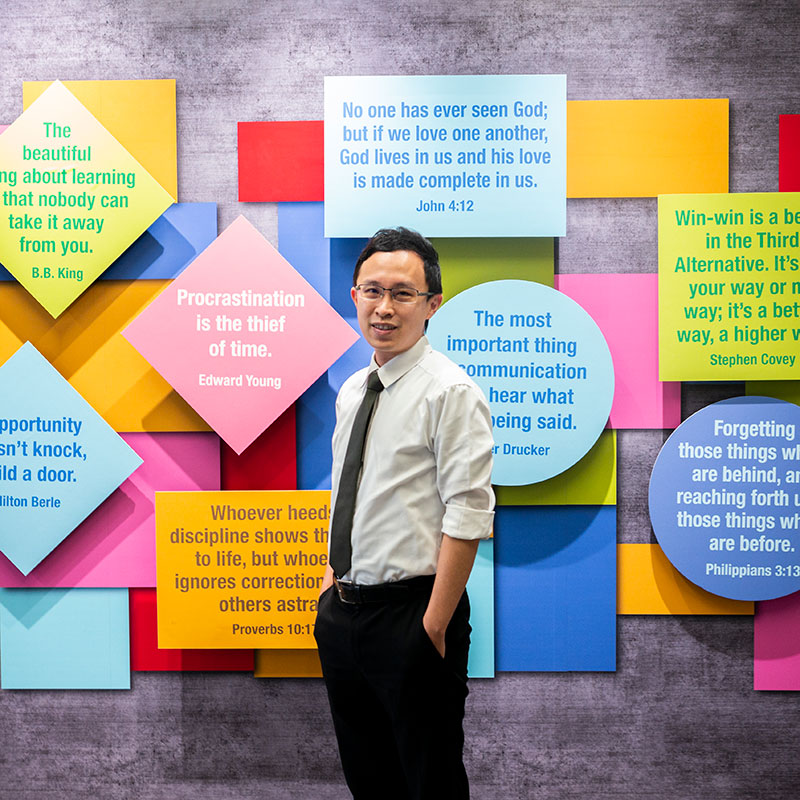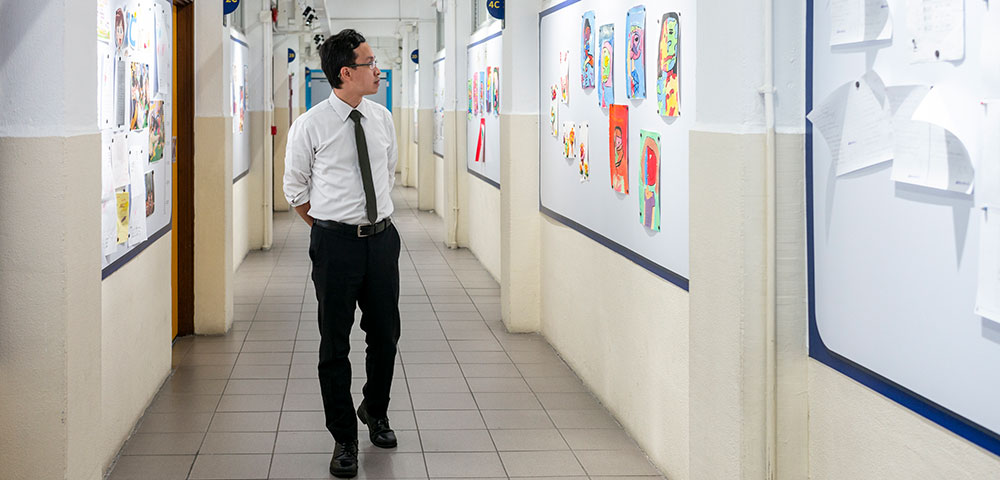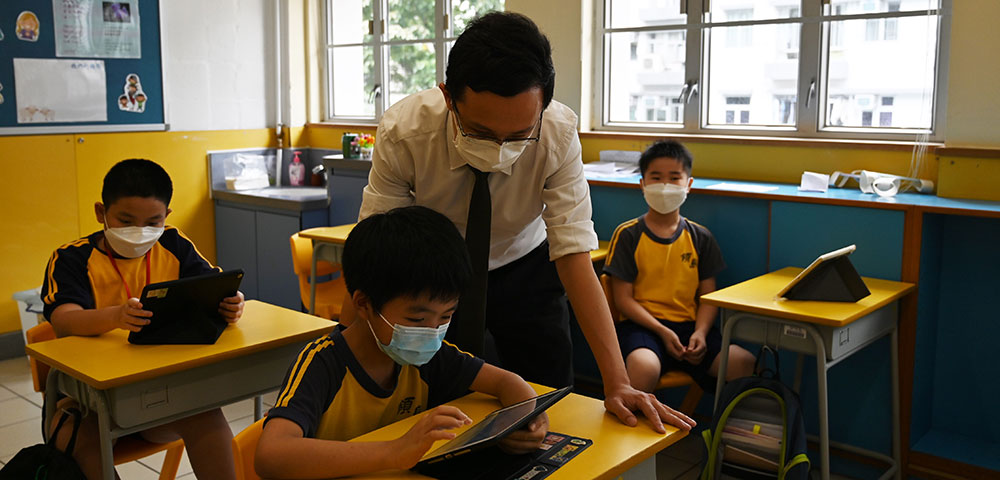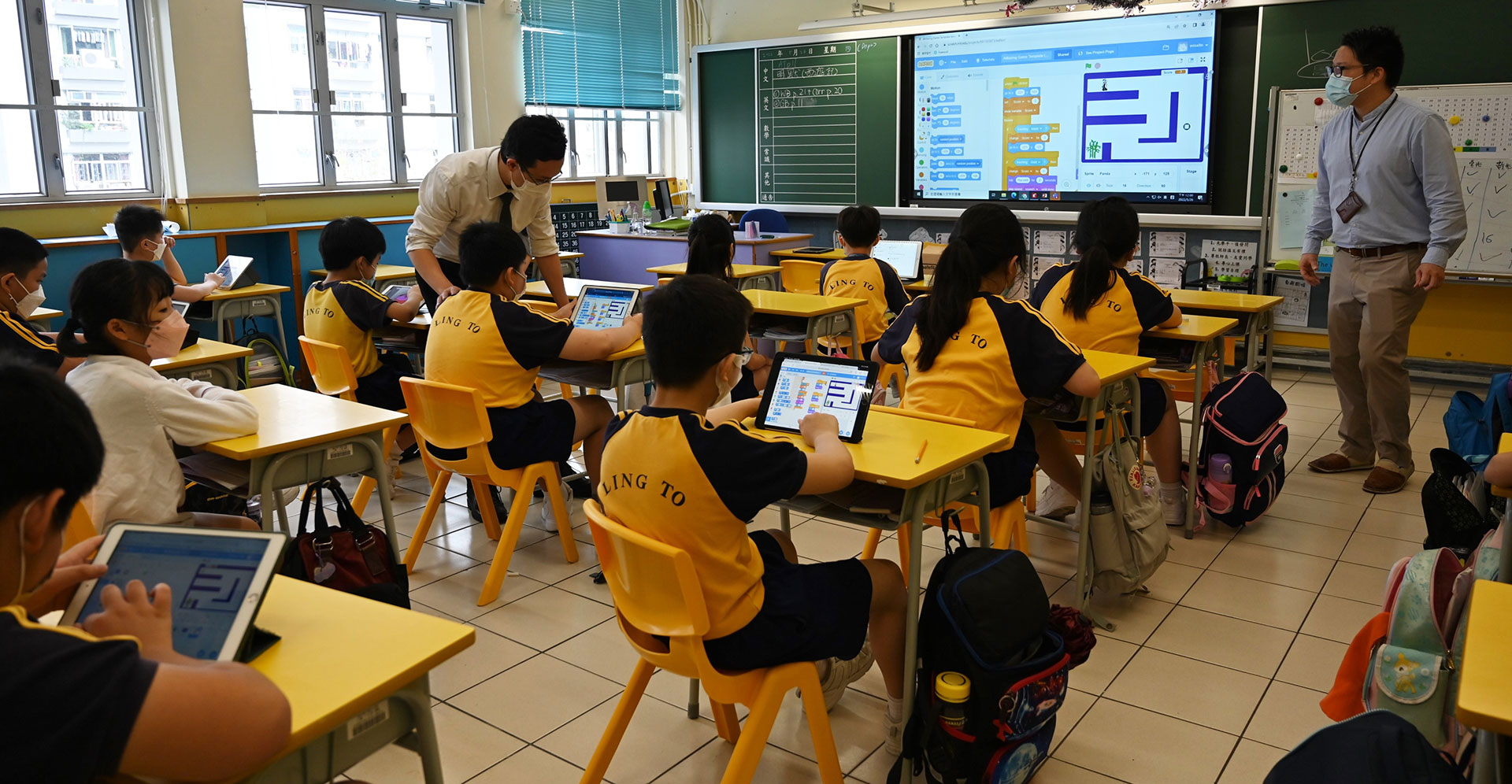Talent & Sector Development
CoolThink@JC: Fueling the engine of future innovation
Andy Li: “A spark in the education sector was followed by the Jockey Club’s foresight in launching the (CoolThink@JC) project.”
A few years ago, computational thinking was still a rather foreign concept, recalls Mr Andy Li, principal of Ling To Catholic Primary School. At that moment, Mr Li was a teacher of Chinese and computer science, interested in innovation and technology. At a teacher’s forum in the United States, he learned that one of the reasons the country is known for innovation is the emphasis it placed on students’ coding education and computational thinking.
Returning to Hong Kong inspired, he designed a coding course for his students, teaching it himself. What he did not expect was that The Hong Kong Jockey Club Charities Trust had also zoned in on the importance of computational thinking and coding education.
Since 2016, the CoolThink@JC project has been rolled out in selected upper primary schools across Hong Kong. Initiated and funded by The Hong Kong Jockey Club Charities Trust, the project was co-created by The Education University of Hong Kong (EdUHK), Massachusetts Institute of Technology (MIT) and City University of Hong Kong (CityU). EdUHK and MIT worked together to create a computational thinking education framework, while CityU ran workshops for teaching assistants and parents.
Mr Li was invited to join the CoolThink@JC’s organising committee and helped design the curriculum. Soon he was promoting the project in his school. “A spark in the education sector was followed by the Jockey Club’s foresight in launching the (CoolThink@JC) project,” Mr Li says. “An idea from the sector was taken to the next level to produce a very successful project. Without it, Hong Kong’s own talents would not be as competitive as they can be.” To date, CoolThink@JC has reached 131 network schools in Hong Kong.*
Mr Li explains that computational thinking is not just about learning to code – it is also about cultivating a “systematic and scientific approach to problem-solving” and inspiring digital creativity. He is delighted to see the progress that both students and teachers have made in the past few years. “Students no longer make directionless attempts when they run into a problem. Instead, they would map out the problem on paper, or even use algorithms to solve it.”
He has also observed similar changes in teachers. For instance, when face-to-face classes were suspended because of the pandemic, teachers in his school got together to list all the issues they faced, before reviewing how work processes could be streamlined and finding solutions systematically.




